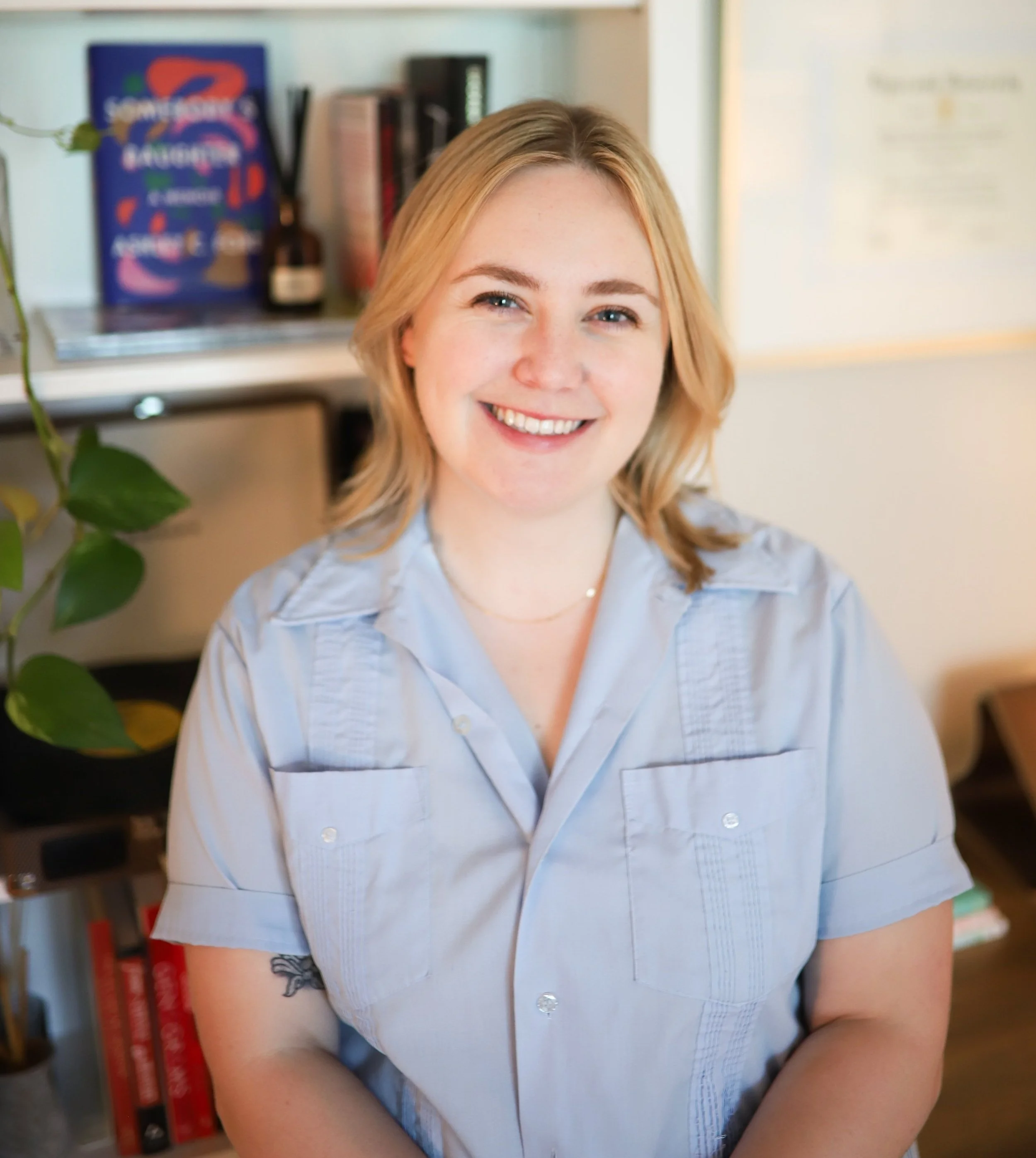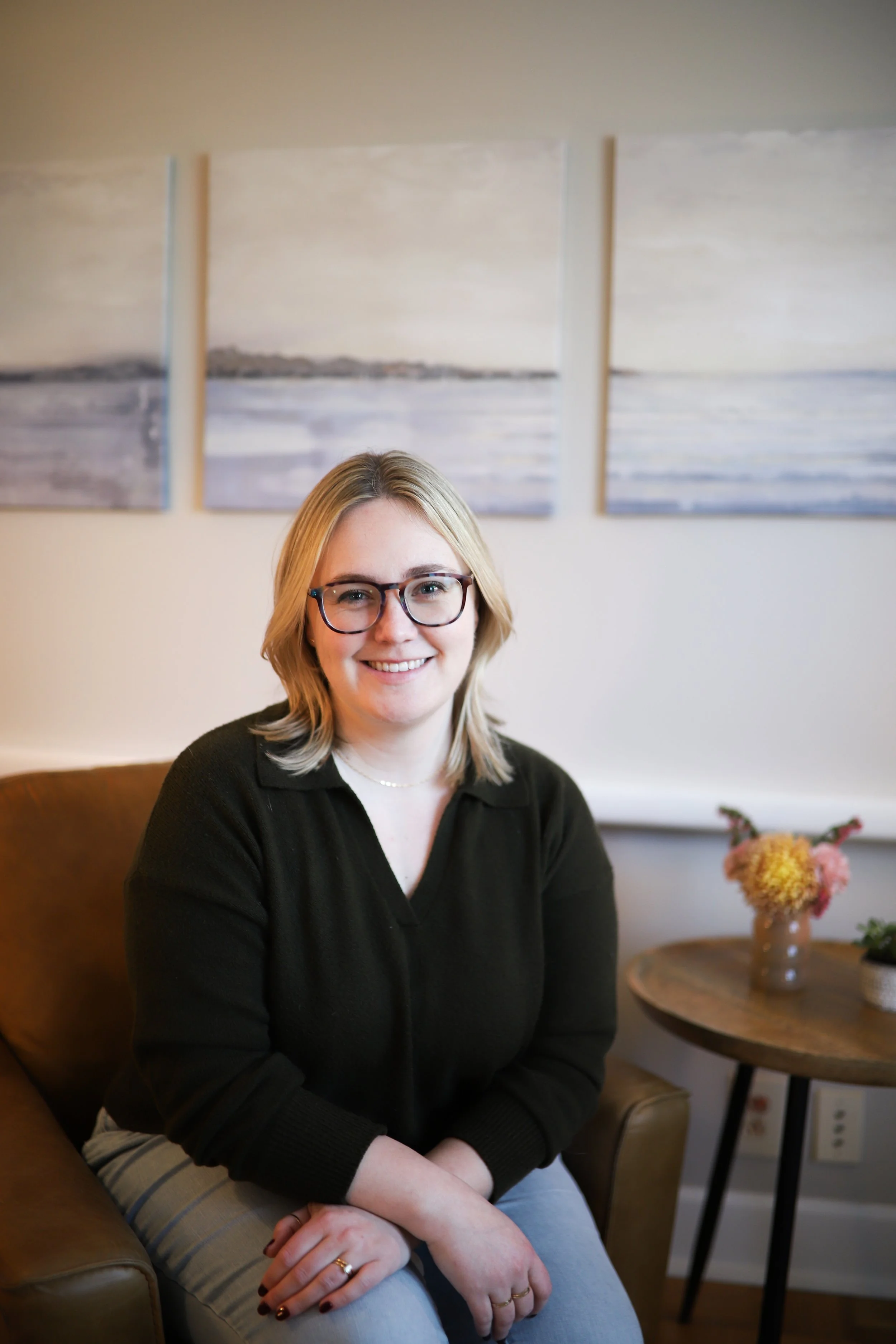Grace Finn, LMFT (she/her/hers)
Welcome!
During my undergraduate education, I worked in two research labs, one that studied emotion regulation and one that studied posttraumatic growth, and received a Bachelors in Psychology and Child & Family Studies at the University of Tennessee. While earning a Masters in Marriage & Family Therapy at Lipscomb University, I interned as a therapist at the Lipscomb Family Therapy Center and Daystar Counseling while assisting with research on racial microaggressions on college campuses.
I am a Nashville native, a member of the queer community, and a human who holds deep empathy for everyone's story. When I am not in my therapy chair, I enjoy hiking with my wife and dog, making playlists that are way too long, and getting lost in any book or TV show that makes me laugh.
Professional Background
Practicing since 2018
Masters in Marriage & Family Therapy from Lipscomb University
License #1794 from the Tennessee Board of Professional Counselors and Marital & Family Therapists
EFT (Emotionally Focused Therapy) Externship
Membership with American Association for Marriage and Family Therapy; Queer and Trans Advocacy Network
Sample of my research writing
“If you want to improve the world, start by making people feel safer.”
— Dr. Stephen Porges, founder of Polyvagal Theory
A few details to get to know me…
-
Julia Jacklin, Peach Pit, Billie Holiday, Adrianne Lenker, Dijon, and a little Chappell Roan to spice up a long walk with my dog.
-
Decolonizing Therapy by Dr. Jennifer Mullan and This Is How You Lose the Time War by Amal El-Mohtar and Max Gladstone.
-
I’m always rewatching Broad City, Fleabag, and the movie About Time in some order. Currently, I’m loving Abbott Elementary.
-
Watching nature documentaries and slowing myself whenever I notice I’m “rushing to nowhere.”
-
Chessy from the Parent Trap as an icon, niche history, and the necessity of little treats.
-
Brief and warm conversations with strangers, knowing that there will always be albums I haven’t heard yet, and the way folks show up in therapy in the midst of unknowns.
Why I became a therapist
Two core aspects of my life led me to becoming a therapist:
First, my own experiences in therapy helped me develop emotion regulation skills, a sense of responsibility driven by integrity instead of shame, and a deeper curiosity about the world around me. As a ripple effect, becoming a person who felt more whole gave me a thirst to pass that healing on.
Second, I am an insatiable learner and research nerd. I have rarely felt scared of a “why” and have followed that curiosity throughout my education and training. Why does therapy work? How can you tell if therapy is not working? Why do emotions shift behavior so starkly? Why can’t we just think our way into changing? From collecting data hands-on to practicing empirically-supported therapy models, I try to exist as a data-informed and critically thinking therapist and person.


